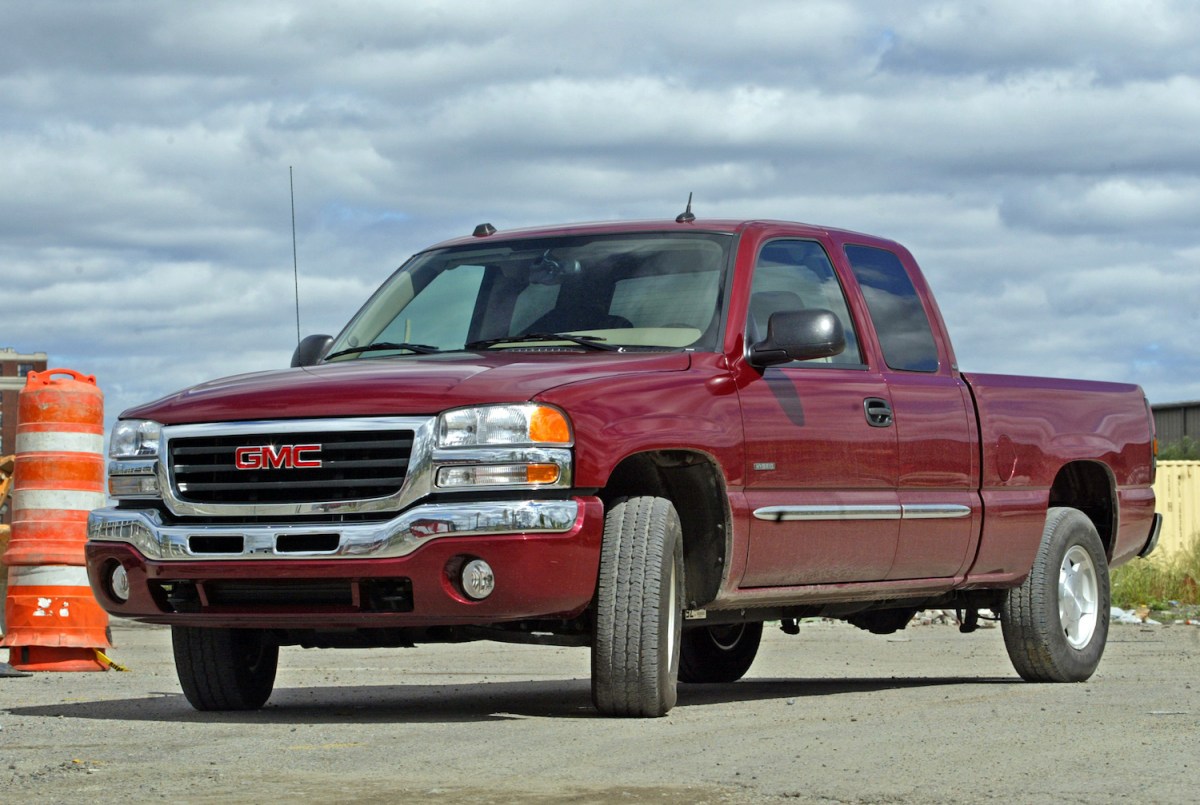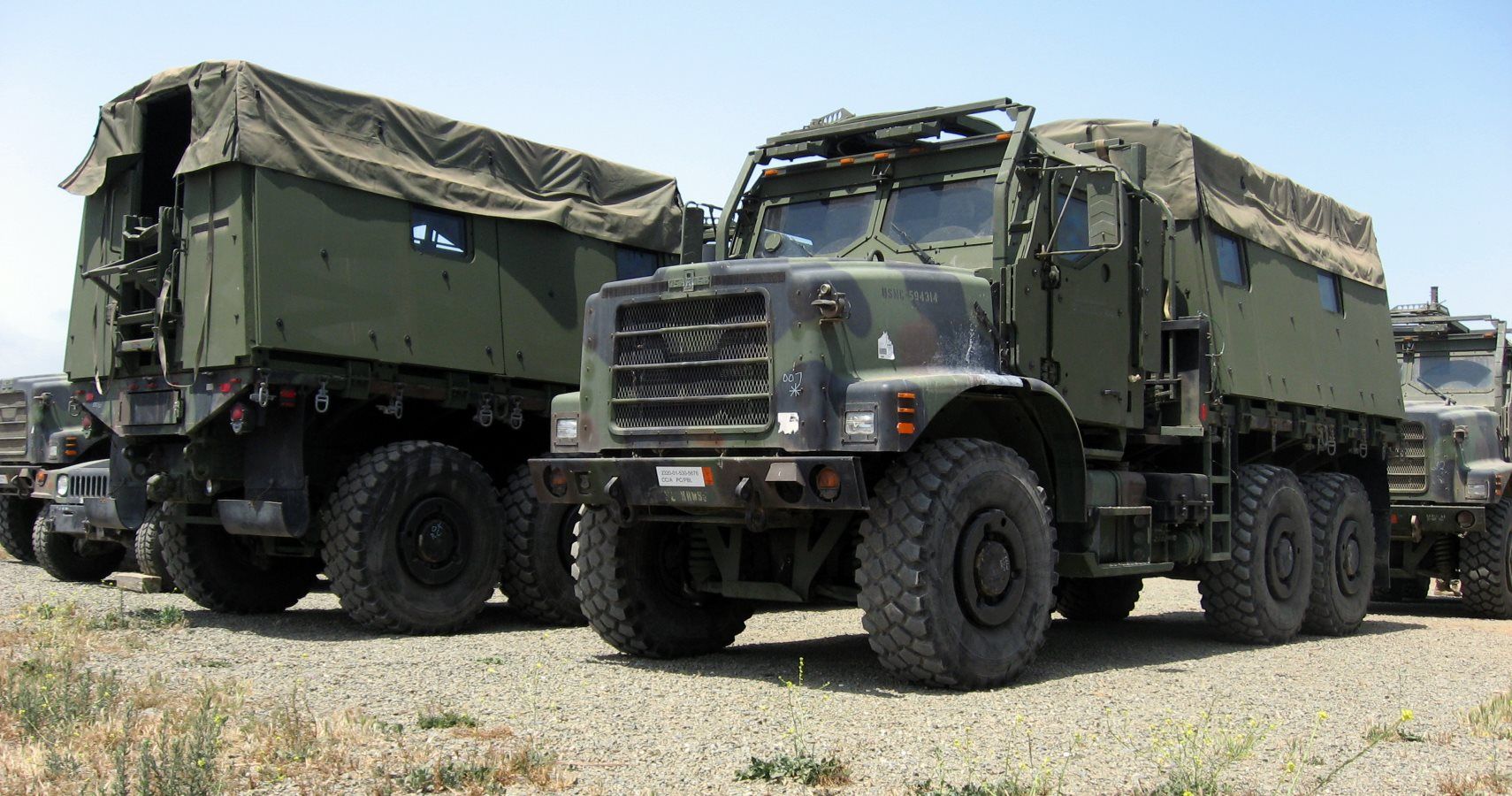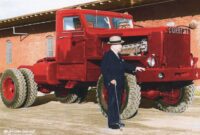Government Pickup Trucks For Sale: Your Comprehensive Guide to Smart Vehicle Acquisition pickup.truckstrend.com
In the market for a dependable, robust, and potentially budget-friendly pickup truck? You might be overlooking a vast and often undervalued resource: government surplus auctions. Far from being a niche market, the sale of government pickup trucks offers a unique opportunity for individuals, small businesses, and enthusiasts to acquire vehicles that have been part of federal, state, or local fleets. These aren’t just any used trucks; they often come with a distinct history of routine maintenance, rigorous service, and an "as-is" price tag that can be significantly lower than their retail counterparts.
This comprehensive guide will navigate you through the world of government pickup trucks for sale, exploring why they’re a smart investment, where to find them, how to navigate the buying process, and what crucial considerations will ensure you drive away with a true gem.
Government Pickup Trucks For Sale: Your Comprehensive Guide to Smart Vehicle Acquisition
Why Consider Government Surplus Pickup Trucks? The Undeniable Advantages
Purchasing a vehicle from government surplus offers a compelling array of benefits that set it apart from traditional used car markets. Understanding these advantages is the first step toward making an informed decision.
- Significant Cost Savings: This is often the primary driver for buyers. Government surplus trucks are typically sold at auction, often fetching prices considerably lower than what you’d pay at a dealership or through private sales for comparable models. The "as-is, where-is" nature of these sales, combined with high mileage or cosmetic wear, contributes to their attractive pricing.
- Documented Maintenance History: One of the most reassuring aspects of government vehicles is their maintenance history. Fleet vehicles, especially those from federal agencies like the GSA (General Services Administration), adhere to strict maintenance schedules and record-keeping protocols. This means you often have access to detailed service records, providing invaluable insight into the vehicle’s past care, major repairs, and overall mechanical health – a rarity in the general used car market.
- Robust and Work-Ready Design: Government agencies primarily use trucks for demanding tasks – construction, utility work, law enforcement, park service, etc. This means the trucks are often specified with heavy-duty components, durable interiors, and configurations built for utility rather than luxury. They are inherently designed to be workhorses, offering reliability and capability that civilian models might not always match.
- Variety and Specialization: The sheer diversity of government operations means a wide range of trucks enter the surplus market. You might find anything from basic 2WD work trucks to heavy-duty 4x4s, utility body trucks with specialized compartments, or even models equipped for specific off-road or emergency services. This variety allows buyers to find a truck perfectly suited to their specific needs.
- Transparent Auction Process: Reputable government auction platforms (like GSA Auctions and GovDeals) operate with high levels of transparency. Bidding is open, and vehicle descriptions, while sometimes brief, are generally accurate regarding known defects. This fosters a fair buying environment.

Where to Find Your Next Government Pickup Truck
The digital age has made locating and bidding on government surplus vehicles more accessible than ever. While physical auctions still exist, online platforms are the dominant force.
- GSA Auctions (General Services Administration): This is the premier federal government auction site. GSA manages the disposal of surplus property for various federal agencies. Here, you’ll find a steady stream of vehicles, including a vast selection of pickup trucks from agencies like the Forest Service, Border Patrol, military branches, and more. Trucks are often well-maintained due to federal fleet standards.
- GovDeals: This platform partners with state and local government agencies (cities, counties, school districts, public utilities) to auction off their surplus assets. GovDeals offers an incredibly diverse inventory, including many pickup trucks used by public works, police departments, and parks and recreation.
- Public Surplus: Similar to GovDeals, Public Surplus facilitates auctions for various government and educational entities across the U.S. It’s another excellent resource for state and local government trucks.
- State and Local Government Websites: Some larger state departments or city municipalities may have their own direct surplus sales websites or list vehicles on their general purchasing sites before turning to third-party platforms. It’s worth checking the specific government entity’s website if you’re targeting a particular type of truck (e.g., a specific city’s public works fleet).
- Live/Physical Auctions: Less common for individual sales, but some larger regions or specific agencies might still hold periodic live auctions. These often require on-site registration and immediate payment, so be prepared.


The Buying Process: A Step-by-Step Guide to Success
Navigating the government surplus auction process requires diligence and a clear strategy. Follow these steps to maximize your chances of a successful purchase:
- Registration: The first step is to register an account on your chosen auction platform (GSA Auctions, GovDeals, Public Surplus, etc.). This typically involves providing personal information and agreeing to the site’s terms and conditions.
- Research and Filtering: Once registered, use the platform’s search filters to narrow down your options. Filter by vehicle type (trucks), make, model, location, and condition. Pay close attention to the auction end date and time.
- Thorough Inspection (Crucial!): This cannot be stressed enough. Government surplus vehicles are almost always sold "as-is, where-is" with no warranties.
- Online Inspection: Scrutinize all provided photos and read the entire description, paying attention to reported defects, mileage, and maintenance notes. Look for rust, body damage, missing parts, and interior wear.
- Physical Inspection (Highly Recommended): If feasible, physically inspect the truck before bidding. Check the engine for leaks, listen for unusual noises, examine the tires, test the lights and electronics, look underneath for rust or damage, and check fluid levels. If you can’t inspect it yourself, consider hiring a local mechanic or a third-party inspection service to do it for you. This small investment can save you thousands in unexpected repairs.
- Budgeting and Bidding Strategy:
- Set a Firm Budget: Determine your maximum bid including potential auction fees, buyer’s premiums, transportation costs, and a realistic estimate for immediate repairs or maintenance.
- Understand Bidding: Most platforms use proxy bidding, where you enter your maximum bid, and the system automatically bids for you incrementally up to that amount. Avoid emotional bidding wars.
- Payment: If you win, you’ll be notified via email. Payment terms are strict, typically requiring payment within 24-48 hours. Accepted methods often include wire transfers, credit cards (up to a certain limit), or cashier’s checks.
- Pickup and Transportation: After payment, you’ll need to arrange pickup within a specified timeframe (usually 5-10 business days). Be aware of the location and access hours. You’ll need to bring your ID and the necessary paperwork. If the truck isn’t drivable or if the location is far, arrange for a tow truck or vehicle transport service.
- Title Transfer: Once you have the truck, you’ll receive the title. Transferring ownership to your name will involve your local Department of Motor Vehicles (DMV) or equivalent agency, following state-specific requirements for registration and titling.
Important Considerations Before You Buy
While the allure of a low price is strong, a savvy buyer considers all angles before placing a bid.
- "As-Is, Where-Is" Rule: This is the golden rule of government auctions. It means you are buying the vehicle exactly as it is, with no guarantees or warranties, and you are responsible for picking it up from its current location. Any issues discovered after purchase are your responsibility.
- Condition Variability: Trucks range from well-maintained, low-mileage gems (rare and highly competitive) to high-mileage workhorses with significant wear and tear, or even non-running vehicles. Be realistic about what you’re bidding on.
- High Mileage and Idle Hours: Many government trucks, especially those from law enforcement or public works, accumulate significant idle hours in addition to driving miles. High idle hours can put as much wear on an engine as driving miles, so inquire if idle hours are listed.
- Agency-Specific Wear: A postal truck will have different wear patterns (right-hand drive, worn driver’s seat) than a Forest Service truck (potential off-road use, scratches, dents). Understand the typical use patterns of the agency that owned the vehicle.
- Rust: Trucks from northern states or coastal regions are particularly susceptible to rust on the frame, body panels, and suspension components. A thorough rust inspection is critical.
- Specialized Equipment: Some trucks come with utility beds, plows, winches, or other specialized equipment. This can be a huge bonus if you need it, but it might also add weight, complexity, or be costly to remove if unwanted.
- Hidden Costs: Always factor in the buyer’s premium (an auction fee, typically 10-15%), sales tax (if applicable in your state), transportation costs, registration fees, and an emergency fund for immediate repairs.
Types of Government Pickup Trucks You Might Find
The government surplus market offers a wide variety of truck types, each with its own characteristics and potential uses:
- Standard Light-Duty Work Trucks: Ford F-150, Chevy Silverado 1500, Ram 1500, Toyota Tundra/Tacoma, Nissan Frontier/Titan. These are common, often 2WD, basic trim levels, used for general transport or light hauling.
- Medium to Heavy-Duty Work Trucks: Ford F-250/350, Chevy Silverado 2500/3500, Ram 2500/3500. These are often 4×4, used for more demanding tasks, towing, or equipped with utility bodies.
- Utility/Service Body Trucks: These are trucks fitted with specialized utility beds, tool compartments, ladder racks, or even small cranes. Common among public works, utility companies, and maintenance crews.
- Specialized Off-Road Vehicles: Trucks from agencies like the U.S. Forest Service, Bureau of Land Management (BLM), or National Park Service may have 4×4, heavy-duty suspension, and skid plates, designed for rugged terrain.
- Right-Hand Drive (RHD) Vehicles: The most common example is the ubiquitous USPS mail delivery truck, often a Jeep Cherokee or Ford Ranger modified for RHD. Great for unique projects or specific delivery needs.
Tips for a Successful Purchase
- Patience is Key: The perfect truck at the perfect price won’t appear overnight. Regularly check auction sites and be prepared to wait for the right opportunity.
- Read Everything: Don’t skim descriptions. Every detail, no matter how small, could be significant.
- Know Your Limits: Stick to your maximum budget. Emotional bidding can lead to overspending.
- Factor in Repair Costs: Assume some repairs will be needed, even if the truck looks good. Build this into your budget.
- Have a Transport Plan: Before you bid, know how you’ll get the truck from the auction site to your home or mechanic.
Challenges and Solutions
- Challenge: Limited Inspection Opportunity: Many auctions don’t allow test drives, and physical inspections might be brief or unavailable.
- Solution: Leverage all available photos and descriptions. If possible, send a trusted mechanic or use a professional third-party inspection service. Focus on platforms that provide more visual detail.
- Challenge: High Mileage/Unknown Wear: The odometer might show high miles, or idle hours aren’t listed.
- Solution: Focus on overall condition and maintenance records (if available). High mileage isn’t always a deal-breaker if the truck was well-maintained. Look for signs of excessive wear on the interior, pedals, and tires.
- Challenge: Competitive Bidding: Popular models or those in excellent condition attract many bidders.
- Solution: Set a strict maximum bid and don’t exceed it. Be prepared to walk away. Consider bidding on less popular models or those with minor cosmetic flaws that deter others.
- Challenge: Logistics of Pickup: Auction sites can be remote, and pickup windows are often tight.
- Solution: Plan transportation before you bid. Have a tow truck or transport service lined up, or confirm you can drive the vehicle legally and safely.
Price Table: Estimated Ranges for Government Pickup Trucks
Please note: Prices are highly variable and depend on numerous factors including specific vehicle condition, agency, location, market demand, and auction platform. This table provides general estimates only and should not be considered definitive.
| Category | Make/Model Examples | Typical Condition | Estimated Price Range (USD) | Key Considerations |
|---|---|---|---|---|
| Light-Duty Work Truck | Ford F-150, Chevy Silverado 1500, Ram 1500 | Fair to Good; High Mileage | $4,000 – $12,000 | Often 2WD, basic trims. Ideal for general hauling, personal use. Check for rust, transmission health, and fluid leaks. |
| Medium-Duty Work Truck | Ford F-250/350, Chevy Silverado 2500/3500, Ram 2500/3500 | Fair to Good; High Mileage | $7,000 – $20,000 | Commonly 4WD, heavier duty, can be utility or service bodies. Inspect suspension, brakes, and specialized equipment functionality. |
| Older/High-Mileage Project | Any make/model (10+ years old, 150k+ miles) | Poor to Fair; Needs Work | $1,500 – $6,000 | Excellent for project vehicles, parts, or those with significant mechanical skills. Expect substantial repairs. |
| Utility/Service Body | Ford F-250/350, Ram 2500/3500 (with specialized body) | Fair to Good; Functional | $9,000 – $28,000+ | Equipped with toolboxes, racks, sometimes cranes or lift gates. Value depends on condition of utility body and specific features. |
| Newer Models (Rare) | Any (under 5 years old, lower mileage) | Good to Excellent | $18,000 – $35,000+ | Less common in surplus, often command prices closer to retail. Highly competitive bidding. Check for recent recalls or service bulletins. |
Frequently Asked Questions (FAQ)
Q1: Are government vehicles reliable?
A1: Generally, yes. They are typically well-maintained due to fleet protocols. However, they are often high-mileage and used for demanding tasks, so their reliability upon purchase depends heavily on individual vehicle condition and maintenance history. Always inspect thoroughly.
Q2: Do government trucks come with warranties?
A2: No. Almost all government surplus vehicles are sold "as-is, where-is," meaning they come with no warranties or guarantees of any kind. All sales are final.
Q3: Can I inspect the truck before bidding?
A3: For online auctions, physical inspection is usually possible during designated viewing periods at the vehicle’s location. This is highly recommended. If you cannot inspect it yourself, consider hiring a local mechanic or a third-party inspection service.
Q4: What does "as-is, where-is" mean?
A4: It means you are buying the vehicle in its current condition, with all its existing flaws, and it is your responsibility to pick it up from its specified location. The government agency makes no representations or warranties regarding its condition or suitability for any purpose.
Q5: How do I transport the vehicle after winning the auction?
A5: You are responsible for arranging transportation. This could involve driving it away (if it’s roadworthy), towing it, or hiring a professional vehicle transport service. Ensure you have all necessary paperwork for pickup.
Q6: Are titles always clear for these trucks?
A6: Most government surplus vehicles come with clear titles. Salvage or rebuilt titles are very rare for vehicles sold directly by federal or state agencies. However, always verify the title status in the auction description.
Q7: Are auction fees high?
A7: Online auction platforms typically charge a buyer’s premium (an additional percentage on top of the winning bid, usually 10-15%). Factor this into your maximum bid. There might also be sales tax depending on your state and the agency.
Q8: What’s the typical mileage on these trucks?
A8: Most government surplus trucks have high mileage (often 100,000+ miles) and potentially high idle hours. However, due to diligent maintenance, many are still mechanically sound and have plenty of life left.
Conclusion: A Smart Path to a Capable Truck
Acquiring a government pickup truck for sale can be an incredibly smart financial decision for those seeking a durable, capable vehicle without the new car price tag. While the "as-is, where-is" nature demands thorough due diligence – especially pre-purchase inspections and a clear understanding of potential costs – the transparency of the auction process and the robust nature of fleet-maintained vehicles offer a unique value proposition. By approaching the process with patience, research, and a realistic budget, you can unlock a world of reliable workhorses and find a truck that serves your needs for years to come.



